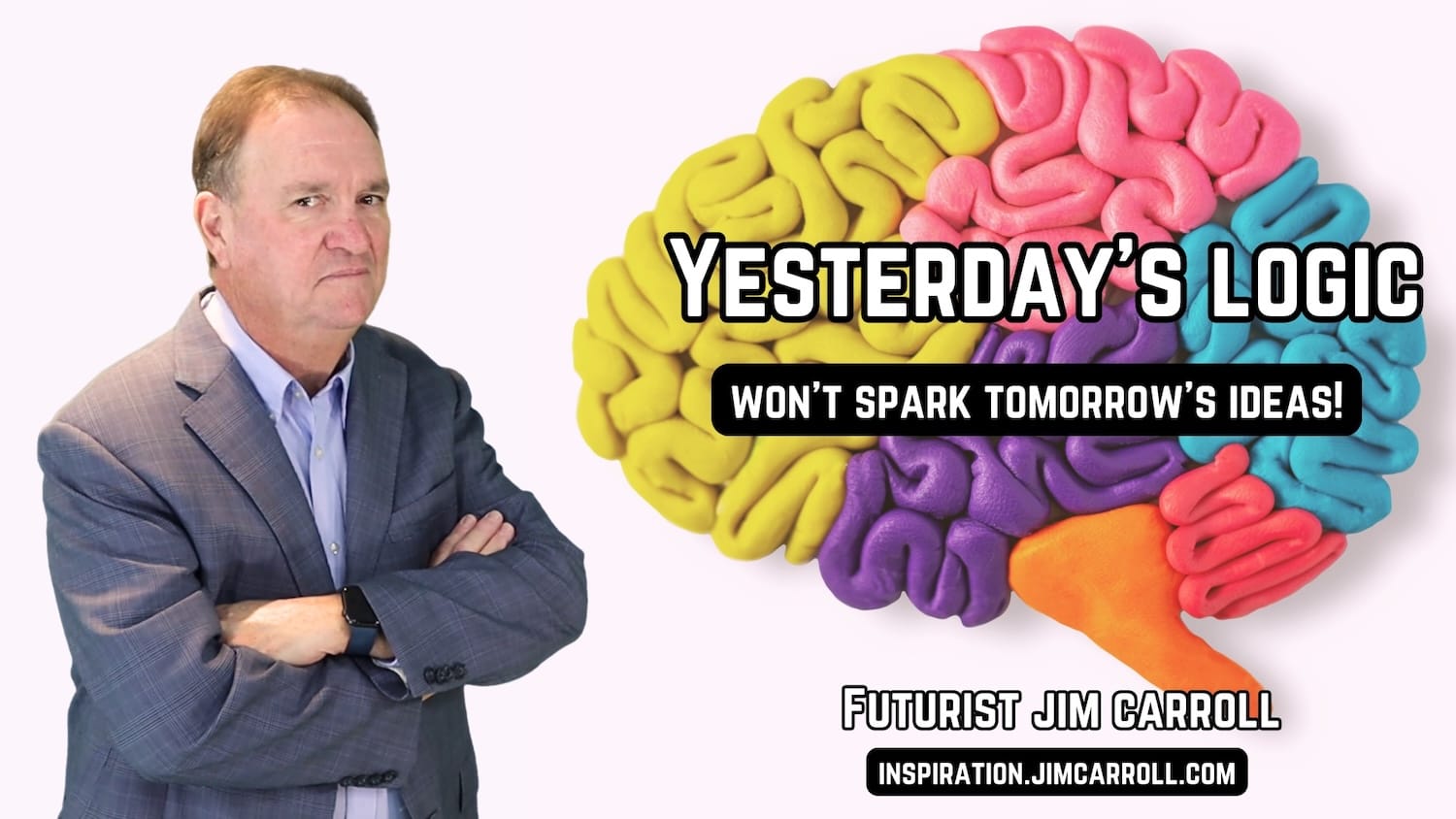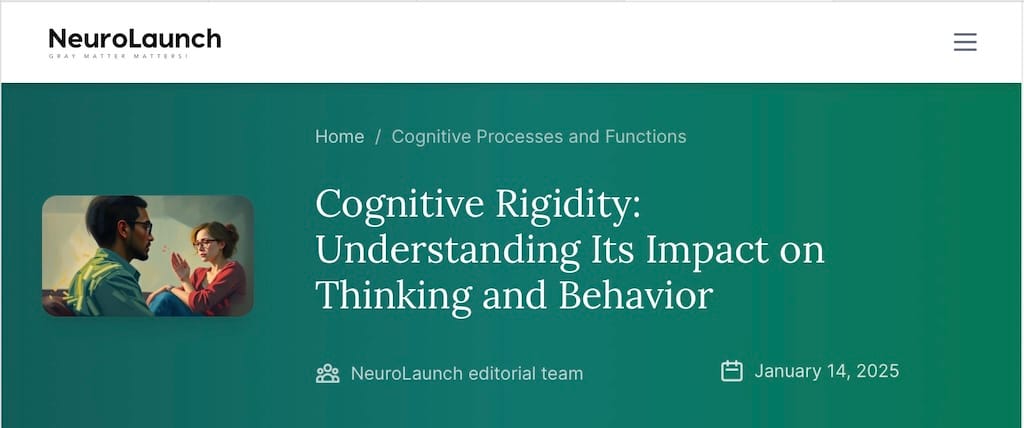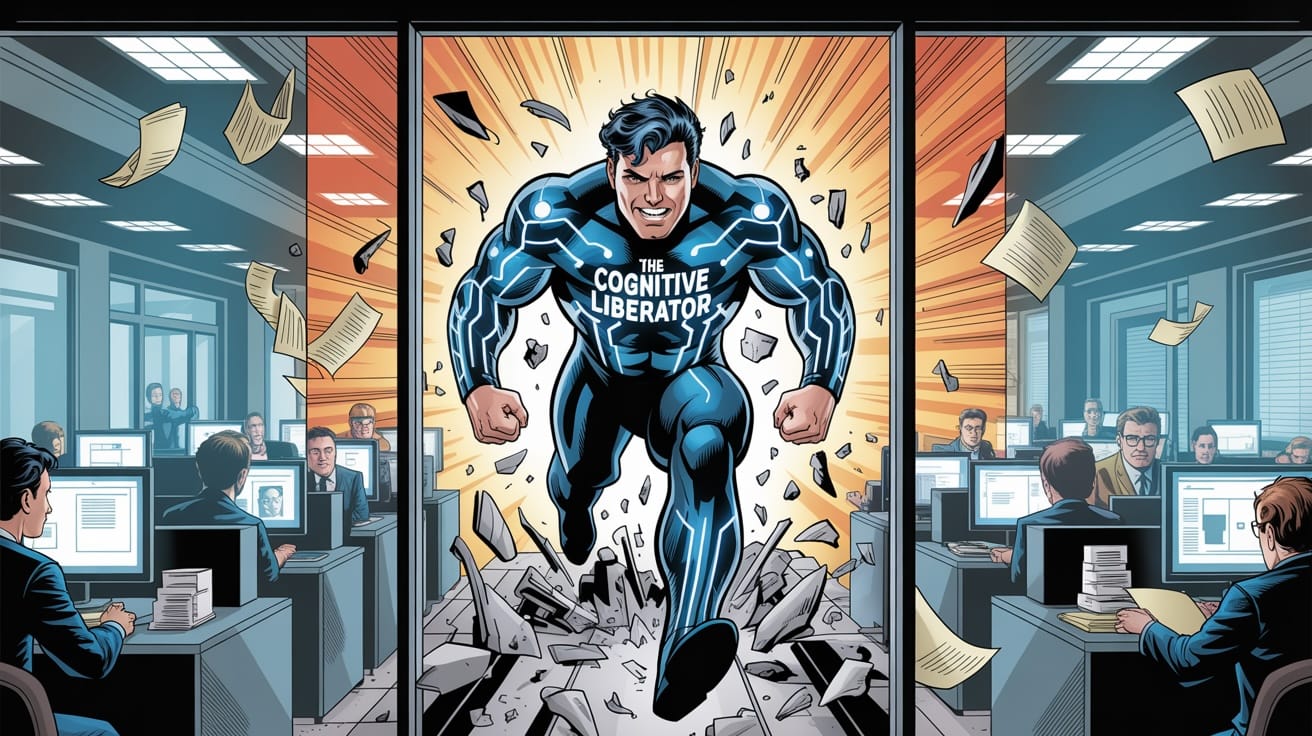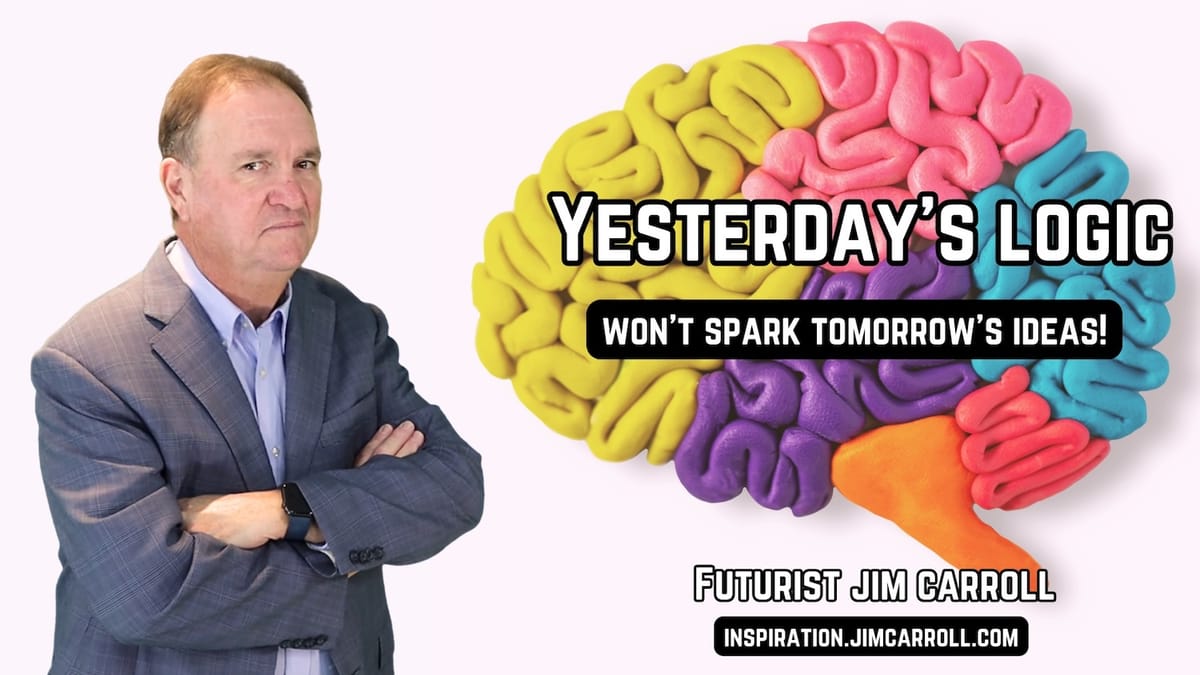“Yesterday’s logic won’t spark tomorrow’s ideas!" - Futurist Jim Carroll

Let's talk about why many innovation efforts fail.
It's often because people keep on doing the same old thing, following the same old ideas, chasing the same old goal that is now irrelevant, fighting among themselves in the same old way over the same old arguments, following the same old pattern of inaction.
Sounds about right.
I was reading a publication the other day while doing some research on another topic and came across this article, which got me thinking about this issue, which led to today's quote.

I quickly learned that the reason for this state of affairs in many organizations is due to what psychologists call "cognitive rigidity.' Let's dig in.
What is it?
Like a stubborn door that refuses to open, our minds can sometimes become locked in patterns that restrict our ability to see new possibilities and adapt to life’s ever-changing circumstances. This mental inflexibility, known as cognitive rigidity, can significantly impact our thinking and behavior, often without us even realizing it.
Cognitive Rigidity: Understanding Its Impact on Thinking and Behavior
NeuroLaunch,, January 14, 2025
So why should we care?
But why should we care about cognitive rigidity? Well, in today’s fast-paced, ever-evolving world, the ability to adapt and think flexibly is more crucial than ever. Whether it’s navigating personal relationships, tackling workplace challenges, or simply trying to keep up with the latest technological advancements, a rigid mindset can leave us feeling left behind and ill-equipped to handle life’s curveballs.
Cognitive Rigidity: Understanding Its Impact on Thinking and Behavior
NeuroLaunch,, January 14, 2025
What's the innovation angle?
Let’s start by demystifying this psychological concept. In formal terms, cognitive rigidity refers to a tendency to persist in a particular thought pattern or behavior, even when it’s no longer adaptive or beneficial. It’s like being stuck in a mental rut, unable to shift gears or consider alternative perspectives.
Cognitive Rigidity: Understanding Its Impact on Thinking and Behavior
NeuroLaunch,, January 14, 2025
The article goes on to identify common traits with the mindset.
- Difficulty in shifting attention or focus
- Resistance to change or new ideas
- Inflexible problem-solving approaches
- Black-and-white thinking patterns
- Struggle with ambiguity or uncertainty
Sounds like my "innovation killers" list which I so often share!
I guess I've been writing about this a lot for years without knowing it had a formal name. Consider a few of my posts along the way:
"If you keep doing what you’ve always done, you’ll keep getting what you’ve always got!" In this post, I wrote about the symptoms of inflexible problem-solving approaches and resistance to change or new ideas, highlighting how sticking to old methods leads to the same results. I noted that "prisoners of routine, trapped by tradition, and chained to repetition," find it difficult to change when their world changes. That tracks!
I commented that it often is the basis for groupthink:
"If you keep listening to the same old people, you’ll keep doing the same old things!" This relates to resistance to change or new ideas and difficulty in shifting attention or focus. It suggests that relying on a limited, familiar set of perspectives - what I call a "mono-culture of insight" leads to a "sameness of thinking" and a "routine of predictability," preventing people from gaining a different perception of the world or better insight into their future.
And then there is this!
"Organizational Sclerosis: It’s when the arteries of creativity become clogged up…." This phrase describes the stage of affairs state where resistance to change or new ideas is rampant throughout an organization. It occurs when everyone continues doing things out of habit, even without understanding why, leading to clogged "arteries of creativity" and a great example of an ingrained attitude and behavior that hinders progress.
I go on:
"Yesterday’s ideas won’t solve tomorrow’s problems!" This speaks to inflexible problem-solving approaches. In this post, I emphasized that relying on "old ideas," "traditional plans," or "old concepts" will fail when facing "new challenges," "new directions," or "dramatic new forms of thinking". It highlights that organizations and people can become too comfortable with routine, leading to complacency.
and finally:
"How many of your daily actions are based on lifelong lessons that no longer apply?" I highlighted how being a "creature of habit, prisoners of routine, captives of ritual" leads to inflexible thinking and resistance to change, causing progress to stall.
So I guess I've been a cognitive inflexibility expert all along!
What happens when this mindset becomes hardened? Pretty much what I see happening in many organizations - these mental models become so ingrained that people can’t see beyond them. This blocks new ideas.
It’s especially dangerous in times of disruption when the old rules don’t apply. People often struggle to adapt to new ideas because they're mentally stuck in the old ones; they become blind to alternatives because they have been rewarded for doing what worked in the past. Not only that, they see everyone else doing the same old thing, so confirmation bias kicks in, telling them to do what has always been done.
The result? Failure.
What's the way out? It turns out that what we need is more cognitive flexibility!
“How does this compare to cognitive flexibility?” Well, my curious friend, cognitive flexibility is essentially the opposite of rigidity. It’s the ability to adapt our thinking and behavior in response to new situations or information. Think of it as mental gymnastics – the more flexible you are, the easier it is to bend and twist your thoughts to fit new challenges.
Cognitive Rigidity: Understanding Its Impact on Thinking and Behavior
NeuroLaunch,, January 14, 2025
I guess that's why there are guys like me, who do the types of things I do to help organizations bust out of their cognitive inflexibility.

With that, maybe I'll start calling myself The Cognitive Liberator!
— —
Futurist Jim Carroll checked, and the domain name CognitiveLiberator.com is available!

